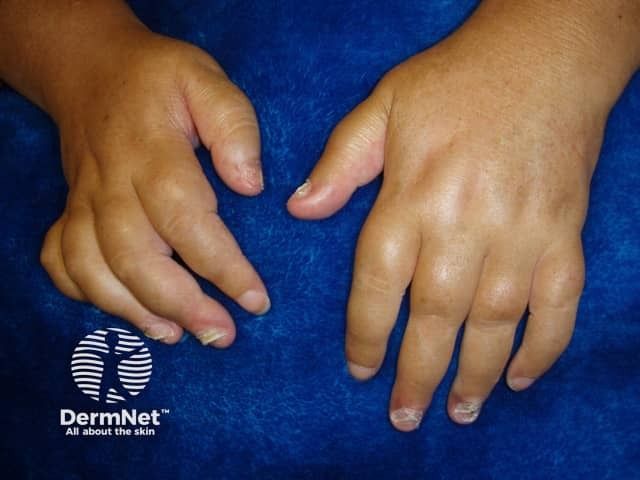- Case-Based Roundtable
- General Dermatology
- Eczema
- Chronic Hand Eczema
- Alopecia
- Aesthetics
- Vitiligo
- COVID-19
- Actinic Keratosis
- Precision Medicine and Biologics
- Rare Disease
- Wound Care
- Rosacea
- Psoriasis
- Psoriatic Arthritis
- Atopic Dermatitis
- Melasma
- NP and PA
- Skin Cancer
- Hidradenitis Suppurativa
- Drug Watch
- Pigmentary Disorders
- Acne
- Pediatric Dermatology
- Practice Management
- Prurigo Nodularis
- Buy-and-Bill
Article
Healthcare reform requires novel approaches to patient care
To meet Affordable Care Act (ACA) goals regarding patient access and quality of care, an expert says, dermatologists are finding increasingly creative ways to deliver care where it’s needed.
Miami Beach, Fla. - To meet Affordable Care Act (ACA) goals regarding patient access and quality of care, an expert says, dermatologists are finding increasingly creative ways to deliver care where it’s needed.
As healthcare reform proceeds, “There’s a great concern among safety-net institutions and hospitals that we will see an increase in the number of patients who require services,” says Miguel R. Sanchez, M.D., director of dermatology at Bellevue Hospital and associate professor of dermatology, New York University School of Medicine.
“Because few dermatologists take Medicaid in New York, and probably in most states, there’s a lot of anxiety about reimbursement,” and who will take care of the estimated 23 million Americans the ACA ultimately won’t cover (
www.cbo.gov/sites/default/files/cbofiles/ftpdocs/121xx/doc12119/03-30-healthcarelegislation.pdf), says Dr. Sanchez, who spoke at annual meeting of the American Academy of Dermatology.
Already, he says that with more than 27,000 visits annually, “Dermatology is the busiest specialty clinic in Bellevue Hospital. We’ve taken the initiative of providing care for several conditions that we believe we are the best people to treat, but that are not always treated in dermatology programs.”
Along with phototherapy, the department offers clinics for woundcare, including chronic leg ulcers; leprosy and tropical diseases; sexually transmitted diseases; vulvar conditions and connective tissue diseases.
Specialty strategies
The dermatology department runs many of these clinics in conjunction with other departments such as obstetrics and gynecology. Still, as a resident-run clinic, dermatology faces challenges including maintaining appropriate ratios of attending physicians to residents, which can be as high as 1:1 in areas such as surgery.
In this regard, Dr. Sanchez says, “Our strategy is to use volunteer attending physicians to supplement the ones that are paid for by the hospital. This is made possible through the hospital’s affiliation with the medical school.” He is the department’s only full-time employee, he adds, along with two full-time equivalent attendings and 27 volunteer attending physicians who each work approximately one shift weekly.
In working with volunteer dermatologists, he says, “My philosophy is if someone becomes available, I find out what their interests are, and I find use for them.” If someone is interested in hair and nails, for example, this could mean starting a hair and nail clinic, if needed.
Broader solutions to the shortage of dermatology providers include partnering with primary care physicians (PCPs) interested in dermatology, Dr. Sanchez says. In 2012, Bellevue’s dermatology department implemented a program to train PCPs how to evaluate skin problems, particularly pigmented lesions. So far, he says, two local internists have completed the program and are now training other community internists and residents.
Utilizing teledermatology
Regarding teledermatology, the department recently began a program to serve inmates at nearby Rikers Island correctional facility, where there is a 10-month waiting list to see a dermatologist. Now, a physician assistant (PA) trained by the department forwards photos from the forensic clinic where inmates are seen, to Bellevue’s dermatologists when needed.
It’s too soon to gauge the program’s impact, Dr. Sanchez says. “However, we noticed right away that the type of visits we’re seeing really require a dermatologist, because patients might require a procedure” or complex diagnostic skills.
Ultimately, he adds, the program will eliminate prisoner transport - which costs the state thousands of dollars per hospital visit - wherever possible. Along with incorporating teledermatology, this might require training PAs or physicians working at the prison to diagnose and treat skin problems there, and/or sending Bellevue dermatologists to the prison occasionally, he says.
In short, “The ACA is saying that rather than the patient always coming to the hospital, the practitioner should be going to the community, providing and promoting good care.” In this climate, Dr. Sanchez says, periodically transporting specialists including dermatologists to understaffed facilities, perhaps in Brooklyn on the Bronx, likely will grow in popularity. Alternately, dermatology departments like Bellevue’s may equip vehicles to host remote patient visits on board.
“We’re trained that we have to work in hospitals” or dedicated offices, he says, but that won’t necessarily be the case going forward.
Skin problems cause patients significant anxiety, whether through symptoms or worries about contagion or skin cancer, he says. “So people don’t want to wait to see a dermatologist. Often they’ll go to emergency rooms. Therefore, we must make every effort to see people on a timely basis. Under the ACA, you’ll have to be accessible to patients when they need you.”
Together, the initiatives undertaken by Bellevue’s dermatology department mean that new patients wait only two to three weeks for an appointment, versus up to six months in other Bellevue clinics, Dr. Sanchez says.
Disclosures: Dr. Sanchez reports no relevant financial interests.





